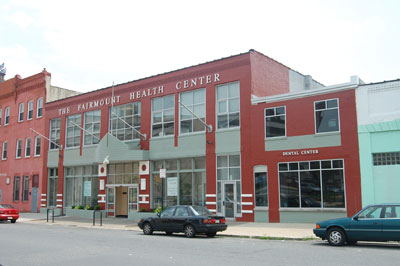I walked down the hall of my health center feeling prepared. I was about to go see the next patient, a young woman, who was due for a mammogram and a pap test. When I walked into the room she was sitting on the exam table, and her case manager was sitting in a chair in the corner of the room. I introduced myself and told her that she was due for a mammogram. She immediately responded saying “No, No, No,... I don’t believe in mammograms.” When I asked her why she did not believe in mammograms, she responded by saying “I don’t trust the doctors, I don’t trust the machines, they are going to hurt me.” I tried telling her why it was so important for women to get mammograms and explained all the steps that would happen during the test to address her concerns. I told her that if she had cancer and did not know about it, that it would increase her risk of dying from breast cancer. Her case manager even stepped in and told a compelling story of how she found a lump in her breast and after having a mammogram, she found out that it was just dense tissue. But none of that mattered to her, and she said no. Afterward, I tried telling her she needed a pap test and she said no, even though she had no idea what a pap test was.

[Image description: Picture taken from outside that shows Fairmount Primary Care Center, a red building covered in glass panels.]
As the Care Navigator at Fairmount Primary Care Center, I spend every day talking with patients about getting preventative cancer screenings. These screenings include mammograms, pap tests, and colon cancer screenings (colonoscopies or stool tests). One of the biggest challenges I face every day is trying to convince patients that it is important to get their screenings done. Serving in a medically underserved area has taught me that not all patients are educated on the importance of getting cancer screenings. But I have also learned from my personal experience at a health center that serves a majority African American population, that many black patients hold a distrust of the medical profession which also serves as a barrier to treatment. Looking back to medical cases like the Tuskegee Syphilis Experiment and the story of Henrietta Lacks, the apprehension of African Americans in pursuing medical treatment is embedded in history. This history, along with many other factors has affected the health of several African Americans today.
According to the Susan G. Komen foundation, black women are 40% more likely to die of breast cancer.1 This discrepancy mainly comes from the fact that many black women don’t get mammograms until the cancer has progressed to a later stage. Keeping this in mind as I walk into patient rooms keeps me determined to make a difference with the patients at my health center. It serves as a constant reminder of why my role in the health center is so important. Since starting my role at Fairmount, I have had many successes convincing the patients at my health center to get their preventative screenings. But just like the patient interaction I mentioned earlier, I have also had some instances in which I was not successful at all. In the end, I told the patient that the next time she came in for an appointment, I would come to speak with her again. Though I am unsure of what will happen, I hope that she will eventually feel comfortable enough to get her cancer screenings done. I know that I only play a small role in a patient's care, but if I can help someone build trust in the healthcare system, that is something I will carry with me throughout the rest of my career in the healthcare profession.
1. https://ww5.komen.org/News/Black-Women-40--More-Likely-to-Die-from-Breas...
